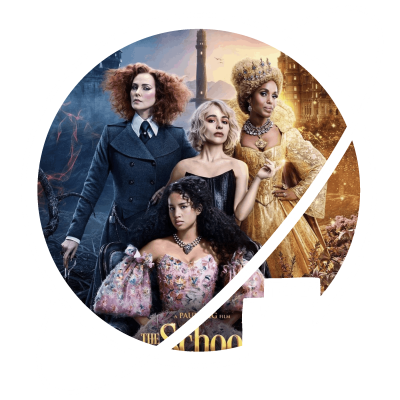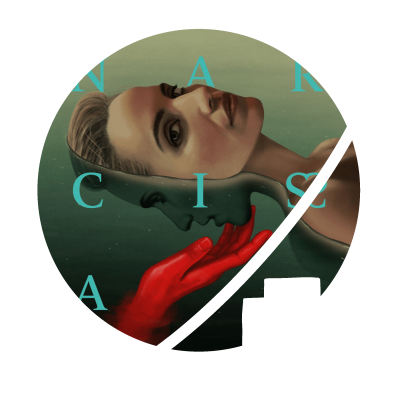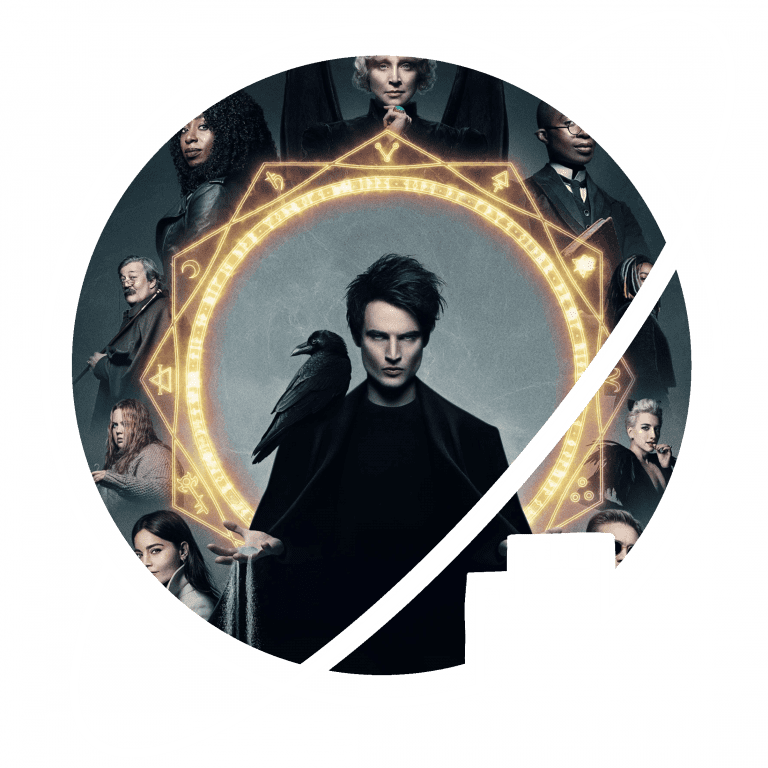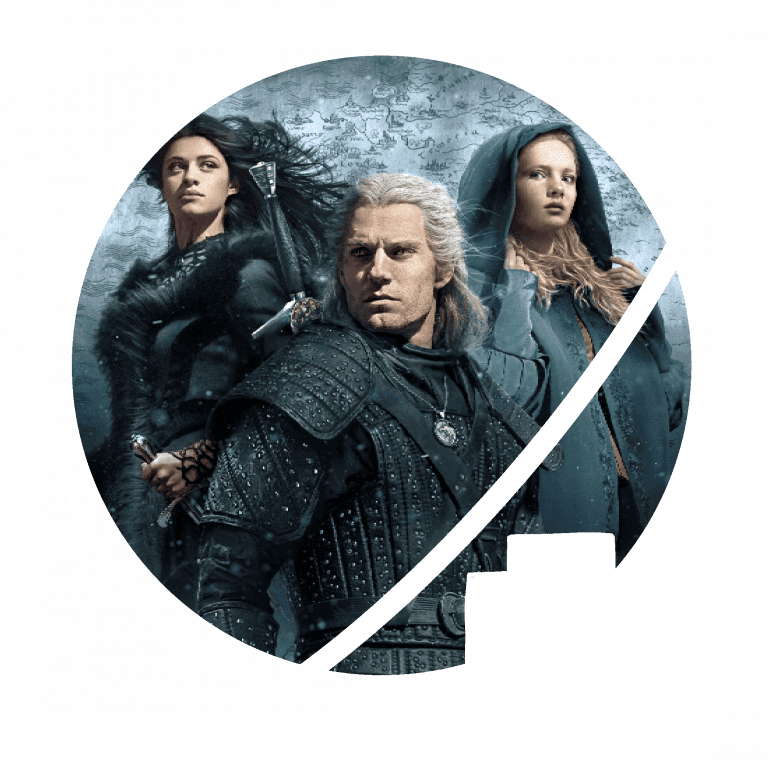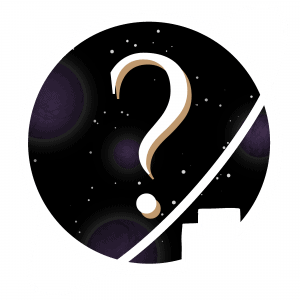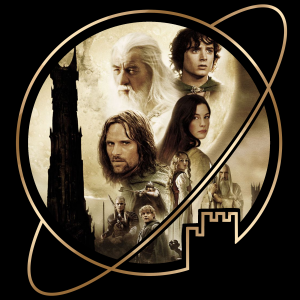A curated Collection of Fantasy and Science Fiction Media
- Movie directed by Paul Feig
- Starring Sophia Anne Caruso, Sofia Wylie, Charlize Theron, and Kerry Washington
- Released October 2022
- Runtime: 147 minutes
Best buds Sophie and Aggy struggle to fit in in their provincial town, until they are suddenly whisked away to the mythical School for Good and Evil. Sophie, who dreams of being a princess, ends up at the school for Evil. Meanwhile, tomboy Aggy finds herself surrounded by vain princesses at the school for Good.

I’ve been quite looking forward to this movie, after seeing the trailer a couple of weeks ago. I was familiar with Sophia Anne Caruso from her work in the Broadway musical Beetlejuice. When she suddenly left, there was a lot of speculation about why. I found my answer to that question when I saw her in the trailer. Good for her!
Now I wasn’t particularly optimistic about The School for Good and Evil. It seems to have been based on a book, but I hadn’t heard of it. I am familiar with Disney’s Descendants movies, in which the kids of some Disney villains go to a school for princes and princesses. I really enjoyed those movies, but they are batshit insane. It’s a theme you really can’t play too straight, as there are too many questions that come up while watching. Why are the “good” kids not actually nice? How can a society of villains work, if all they do is treat each other badly? The answer, of course, is that there is no such thing as good and evil. However, having your movie end with that moral is like having your movie end with the revelation that the earth is round. Yeah. We know.
Because of all this, I wasn’t expecting to enjoy this movie very much, but I was pleasantly surprised. It’s not… good? But for me, it managed to find the right tone. It’s not extremely silly, but it also knows that it’s not some kind of cinematic masterpiece. The costumes are fun and the story is relatively simple. It’s a nice little romp through a fantasy land that you know is going to end well. None of the characters are particularly memorable, the writing is average and it’s very cliché in many ways. But who cares! Not every movie has to be a masterpiece to be enjoyable.
Now can anybody explain to me why anyone would want to date Teddy??
Tagged:
- Movie directed by Steven Spielberg
- Starring Sam Neill, Laura Fern, Jeff Goldblum, Richard Attenborough, Samuel L. Jackson, and others
- Released 1993
- Runtime: 127 minutes
John Hammond, a rich industrialist with more money than sense, decides to build an incredible theme park filled with actual live dinosaurs cloned from ancient DNA. The facilities are on a remote uninhabited island, isolated from the rest of the world. Hammond’s investors, fearing safety risks, send a team to assess the park’s security. When a tropical storm strikes the island during the very first tour, the security system is immediately subjected to a thorough stress-test…

Some pieces of media are so critically acclaimed that writing a review almost feels like sacrilege – how dare I, measly hobby-reviewer, have an opinion on one of the great works of Steven Spielberg?
Jurassic Park is a bit like that, so I’m treading lightly (unlike, say, a T-rex). The reason I am still reviewing Jurassic Park is that I found out Jasmijn hadn’t actually ever watched it – which was somewhat shocking, because as a full-fledged-never-quite-grown-out-of-it-dinosaur kid it is almost impossible to imagine that there are people who do not have the memory of that T-rex encounter or the velociraptor kitchen scene engraved in their childhood brain. So basically, I am here to tell you that if you haven’t watched Jurassic Park, what are you doing with your life and clear your schedule tonight. Which, incidentally, is exactly what Jasmijn and I did.
So, Jurassic Park is a movie about dinosaurs that is older than I am. Maybe you’re expecting me to say that the special effects don’t hold up, but that you should watch it for it’s place in cinema history. You’d be wrong. Sure, you can tell in some scenes that the CGI wasn’t exactly made yesterday. But since most of the close up work is done with animatronics or people in honest to god dinosaur suits – and since a lot of the CGI is during somewhat blurry night shots – it is hardly noticeable that the movie is nearing it’s 30th birthday. Some of the pacing is a bit different from what we’d expect today, but once disaster starts to strike, I guarantee you’ll be on the edge of your seat. I’m not exactly a fashion enthousiast, but it even feels like a lot of the clothing in the movies is actually getting back in vogue these days.
Jurassic Park does not have a particularly sophisticated message or subversive twist. It lays it on thick sometimes. It might not surprise you. It neatly fits the classic movie model. But it is just incredibly well made, with lovely little touches like always showing the humans’ reaction to the dinosaurs before aiming the camera at the prehistoric beasts that are the real stars of the show. And of course, the premise is the absolute best. I think Jurassic Park is a movie for everyone, as I am sure Jasmijn’s review will confirm.
I’m subtracting half a star because being controversial is fun (if I was just going to give this a five star rating, you might not be reading this review!), and also for the liberties Spielberg and his team took in their depictions of dinosaurs (both the ones they should’ve known about and speculation that was subsequently disproven by later paleontological research). You know I’m a stickler for historical (and apparently, prehistorical) accuracy: velociraptors are way smaller than that, and also have feathers. I once outran a T-rex on a bike (though it was hard work) in my local museum T-rex experience (set up when they acquired their T-rex skeleton), so a Jeep shouldn’t have any trouble. No way a brachiosaurus is going to stand up on its hind legs. Etc. But don’t let my pedantry get in the way of having fun – they mixed in frog DNA, so for all we know a cloned dilophosaurus might actually spit poison…
I’ll be honest, I haven’t read Crichton’s book yet (please forgive my hypocrisy, I originally watched it before I decided on my rule to always read the book first), but now that I’ve re-watched the movie, that’s itching a bit. Sigh. Another one to put on the list.

This was my fist experience with the Jurassic World-franchise and I must say that I was amused. The story goes where you expect it to go and if the movie was filmed today I would hope that the cast would be more diverse – it is a product of it’s time. However, none of these issues break the movie. The characters rely a bit on stereotypes bus they have their twists and turns along the way. Overall, I was having a good time.
I watched this movie with Peter because dinosaurs are awesome and in that area the movie did not disappoint. For a movie that was made in the nineties, the way they decided to bring those dinosaurs to life on screen still holds up quite well.
Why had I never tried to watch this myself? I was a little afraid that the story and visuals would be gruesome (rampaging dinosaurs, lots of blood everywhere), but I was pleasantly surprised. This is a movie that can be catered to a younger audience as well, the bits that could be seen as ‘gruesome’ still have a slapstick-y element.
Next stop: the natural history museum, because I need to see the dinosaurs!
Tagged:
See also:
No posts found!
- Audio drama created, written and directed by Alex O Eaton
- Produced by QCODE
- Released in 2022
- Starring Dianna Agron, Maria Sten, and others
In a highly surveilled future Los Angeles, mind-readers are outlawed. Sid and her family have spent years trying to protect her true identity as a ‘reader’, but this becomes harder and harder when for the first time in years, a string of murders takes place. And then Sid meets Andie, a mysterious woman she falls head over heels for, but who is not who she seems to be…

Sometimes you read or watch or listen to new media and you wonder whether you have lost the capacity to truly love something. Everything is just ‘good’ and you think you have just become more critical. But then something comes around that reminds you: if it’s really good, you’ll know. Narcissa absolutely did this for me.
Although the summary above is not particularly exciting, the execution of this audio drama is amazing. The performances of Dianna Agron (Sid) and Maria Sten (Andie) are stellar, the characters are believable and complex,. the writing is exactly the amount of show-don’t-tell I love and the sound really feels like it’s coming from all around you. Where I sometimes get the feeling that an audio drama is written and produced by someone who is more into novel writing or film making, here the makers of QCODE definitely know what they are making and how you build a story through sound.
And oh, right, I almost forgot: the sex is HOT.
The only critique I can give is that the end falls a little flat in the sense that I did not know if episode 8 would be the last one. I had to wait a week before I dared to conclude the series was over. The main storyline had wrapped up in episode 8, true, but there was still an opening for a twist. And at the same time, a whole new can of worms had just opened up that would drive the story forward. I guess – and definitely hope – that those worms will be tackled in a next season.
Tagged:
See also:
- TV series created by Neil Gaiman, David S. Goyer, and Allan Heinberg for Netflix
- Released in 2022
- Starring Tom Sturridge, Boyd Holbrook, Vivienne Acheampong and Patton Oswalt
- 1 season (as of September 2022)
When the King of Dreams returns to his realm after decades of imprisonment in the human world, he finds that his realm has crumbled and his power has diminished. Soon he must return to the waking world to recover his possessions and restore his power over his subjects.

This review relates to season 1
I have read all of the Sandman comics some years back and I loved them enough that I might even want to add them to our Collection at some point. However, one of the drawbacks of the comics is that they are not very accessible: with thirteen volumes, buying all of them will cost over a hundred euros, and so not many people that I know have read them. Therefore I was excited to hear that Netflix was working on an adaption, as it might bring the story to a bigger audience.
However, as with any adaptation I was also a little worried: the Sandman is a pretty complex story, and I expected it would be hard to do it justice when translating it to the screen.
When I watched the first episode, at first I did feel a little disappointed. The dialogue seemed overly dramatic, and somehow it gave me the feeling of a bad Doctor Who episode (and not because Jenna Coleman was in it). I felt I just could not take it very seriously. However, as we got further into the show this feeling passed, and I started to recognise some of the elements that made me enjoy the comics so much. Just like the comic books, it does not try to overexplain things: it trusts the viewer to accept that they will not understand everything at once. Instead it is happy to just throw around some puzzle pieces and to leave them lying around for a while. I think this is one of the greatest strengths of the story, because by the time everything comes together you will feel like you have traveled a long journey.
Overall, I think the show does a very good job. The casting is great, and the creators have managed to set a tone that feels true to the comics. The next seasons will feature some of my favourite stories, so I am looking forward to that!

This review relates to season 1
I knew Robin was super stoked about this show so I watched it immediately as it came out. I haven’t read the comic but I am a fan of Neil Gaiman’s work, so let’s say I wasn’t worried about whether I was going to like The Sandman.
On the whole, I really enjoyed it. I kind of wish we’d spent a bit more time in the Dream world, but this was only season one so perhaps we will see more of it one day.
You can definitely see that The Sandman is not based on a novel. The pacing is a little strange, presumably because it was based on several issues of a comic. I think if I hadn’t known it was based on a comic I would definitely be complaining about the narrative arc. If you are aware of the story’s origins, however, it’s definitely less frustrating to try to understand how it is structured.
I really liked the characters and found it a bit of a shame that, because of the nature of the source material, we only spent a couple of episodes with some of them.
The main villain was less interesting to me. I’m not usually a big fan of villains, unless I can find a reason to really empathise with them. The bad guy in Sandman is very much just Evil with a capital E, so pretty boring to me.
Can’t wait for a second season, though! I may even read the comics one day.
- Book written by Arkady Martine
- Published in 2021
- Part two in the Teixcalaan Duology
After playing a pivotal role in the recent political upheaval on the Jewel of the World, ambassador Mahit Dzmare leaves Teixcalaan – and her cultural liason Three Seagrass – behind to find a moment of respite on her native Lsel Station. Once she arrives, however, she finds that she cannot from escape politics even in her own home – and before long, even the long arm of the Teixcalaanli Empire reaches her to drag her off to the front in a new war that is -at least partially – of her own making…
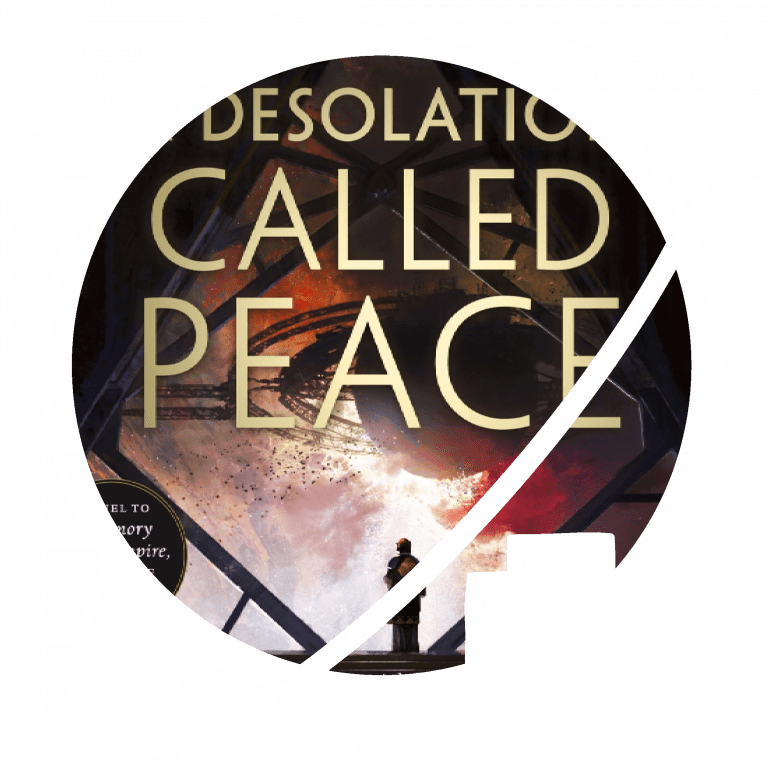

Listened to the audiobook with Amy Landon – it worked, but I feel this is maybe not a series for listening to. Do as I say, not as I do…
Arkady Martine recently won her second Hugo Award for A Desolation Called Peace. That means she’s gone two Hugos for two novels so far, which is an impressive record to say the very least. I just finished the novel as well, so I figured that’d be a perfect occasion to upload the review.
I loved A Memory Called Empire because it was such a great balancing act between the politics, the plot, and the personal. In A Desolation Called Peace, Martine does a similar great job balancing politics, war, and the personal stories and relationships of her main characters. She keeps the story fresh by shifting focus partially awat from the the Jewel of the World (the Teixcalaanli capital) to Lsel and the Six Outreaching Palms (the Teixcalaanli fleet). At the same time, she further explores the themes of intercultural communication that she already introduced in A Memory Called Empire, delving deeper into the relationship between Mahit and Three Seagrass as well as the diplomatic relationship between Teixcalaan and its new enemies.
A Desolation Called Peace is still very much a science fiction novel but like A Memory Called Empire, it feels like it has just a little more weight to it than most stories that feature space battles and first contact. It has conversations that feel like duels, reminding me of Dune. It hits modern and relevant themes. And it even has cute Kauraanian kittens clogging the pipes of a warship to balance all that seriousness out.
The only thing that holds A Desolation Called Peace back a little compared to A Memory Called Empire is that it features many more story lines and relationships, and as a result, it has a little less space to give each of them the depth that Mahit’s relationships with Yskandr, Three Seagrass, and Nineteen Adze have in Memory. That doesn’t mean that it isn’t a great novel in a great setting though, and though I haven’t read any of the other novels on the nomination shortlist, I am convinced that A Desolation Called Peace deserves the Hugo as much as the previous instalment.
- TV series created by Lauren Schmidt Hissrich for Netflix
- Released in 2019
- Starring Henry Cavill, Freya Allan, and Anya Chalotra
- 2 seasons (as of September 2022)
Geralt of Rivia is a Witcher, a fighter of monsters of all shapes and sizes. One day he claims a reward for his services, and unwittingly entwines his fate with that of Princess Cirilla of Cintra. When they eventually meet, Geralt is faced with his destiny: protecting Ciri and with her, the world.

I really enjoyed the Witcher. I binged both seasons as soon as they came out. To be honest, I was pretty ready to dislike Geralt, as I’m not usually a fan of the grumpy troubled man archetype. However, I was pleasantly surprised to find that Geralt was not just a grumpy bastard, but was instead a slightly grumpy nice dude.
Anya Chalotra’s interpretation of Yennefer charmed me as well. I’m usually a big fan of a Complicated Woman, and boy is she complicated. However, I didn’t like her motivation at all. As someone who cares very little for babies, I definitely struggle to understand wanting to go very far to acquire one. Still, I liked her vibe.
In season two I struggled with her a bit more. For a couple of episodes, I would have sworn she was another character in disguise. Eventually, I had to come to terms with the fact that Yennefer seemed much softer than she was in season one. Perhaps still complicated, but her relationship with Geralt was much more conflicted in season one. In season two, she’s just really into him and it was kind of jarring to me.
What I really like about the Witcher is that it shows that you can do a gritty fantasy show without excessive violence against women (looking at you, Game of Thrones).
Fair warning: the pacing of the first season is a little bit weird. There are two timelines shown simultaneously, and the execution of this could have been a little bit better. However, I think it’s definitely worth pushing through. It’s very satisfying when everything eventually falls into place.
The Witcher definitely has horror vibes, so maybe reconsider watching it if that’s something you’re sensitive to.
© 2023 – Escape Velocity – A Curated Collection of Fantasy and Science Fiction Media
Privacy Overview
| Cookie | Duration | Description |
|---|---|---|
| cookielawinfo-checkbox-analytics | 11 months | This cookie is set by GDPR Cookie Consent plugin. The cookie is used to store the user consent for the cookies in the category "Analytics". |
| cookielawinfo-checkbox-functional | 11 months | The cookie is set by GDPR cookie consent to record the user consent for the cookies in the category "Functional". |
| cookielawinfo-checkbox-necessary | 11 months | This cookie is set by GDPR Cookie Consent plugin. The cookies is used to store the user consent for the cookies in the category "Necessary". |
| cookielawinfo-checkbox-others | 11 months | This cookie is set by GDPR Cookie Consent plugin. The cookie is used to store the user consent for the cookies in the category "Other. |
| cookielawinfo-checkbox-performance | 11 months | This cookie is set by GDPR Cookie Consent plugin. The cookie is used to store the user consent for the cookies in the category "Performance". |
| viewed_cookie_policy | 11 months | The cookie is set by the GDPR Cookie Consent plugin and is used to store whether or not user has consented to the use of cookies. It does not store any personal data. |






